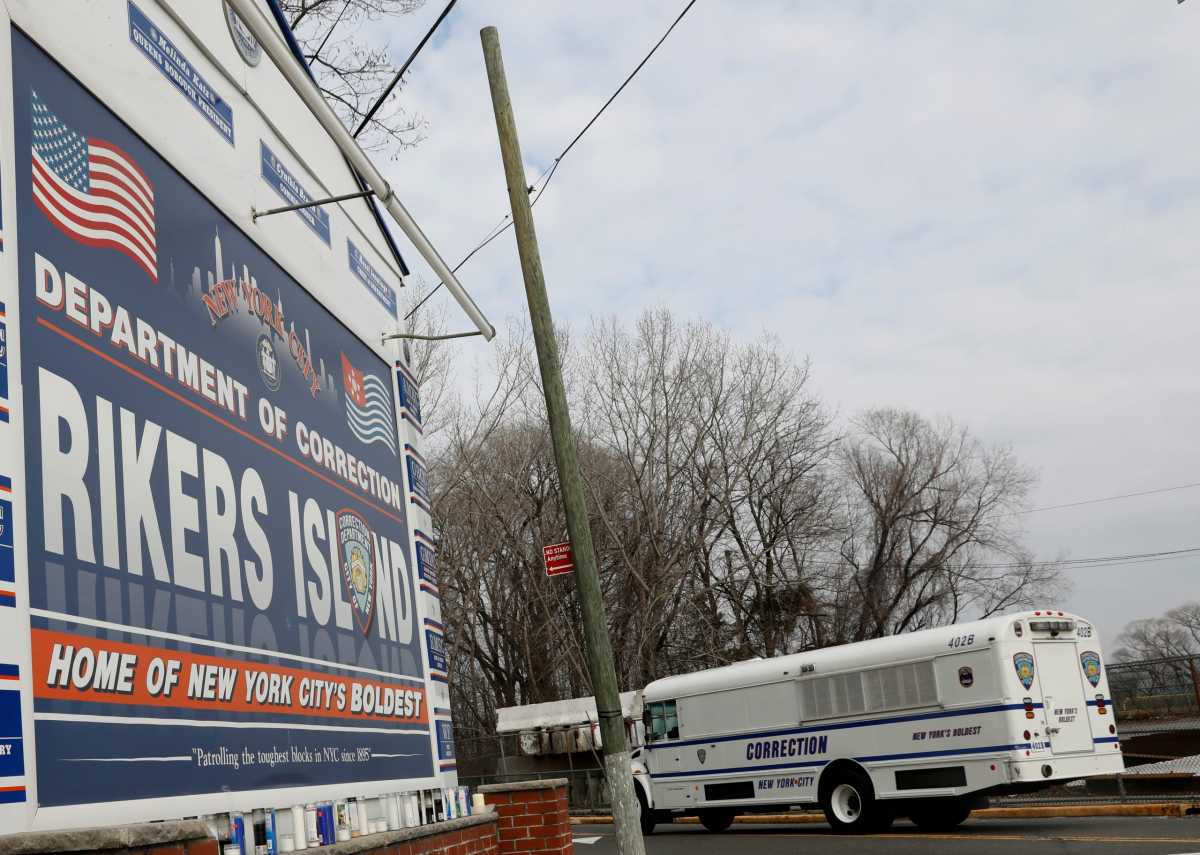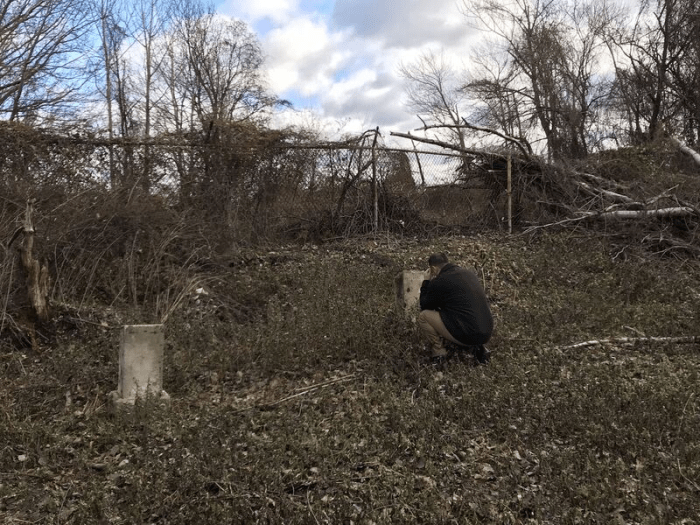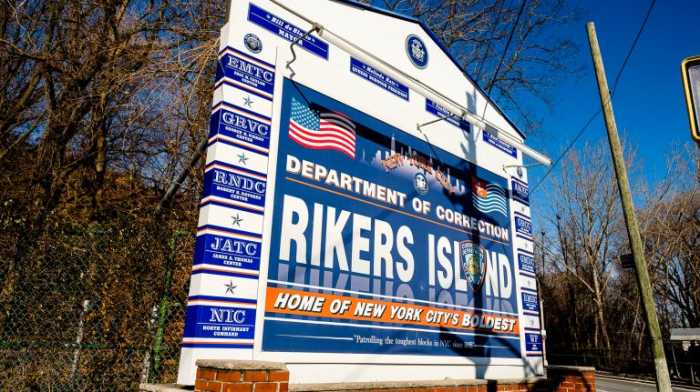Mayor Bill de Blasio officially announced on Tuesday the Department of Corrections (DOC) decision to permanently end the use of solitary confinement as a form of punishment, in city jails while lawmakers are demanding changes to Rikers Island’s vaccine eligibility to include incarcerated persons.
At his daily briefing on March 9, de Blasio recounted the tragedy of Kalief Browder’s solitary confinement and the impact of his subsequent suicide.
“The fact that anyone could be left in solitary confinement for two years is shocking to think about in the history of this city,” said de Blasio about Browder’s treatment. “He should have never been at Rikers Island to begin with for having been accused of stealing a backpack.”
De Blasio said that Browder’s death moved the city and DOC to reevaluate the stark abuse of solitary confinement and the strain it puts on an incarcerated person’s mental health.
“We said that we could do something very different, in fact I came to the conclusion that we could end solitary confinement entirely in New York City,” said de Blasio.
Vice Chair of the NYC Board of Correction (BOC) Stanley Richards said that the goal is to change the department’s response to violence by prioritizing safety and support.
“As an African American man, a family man, a husband, a grandfather, a formerly incarcerated person, today marks a major milestone in our pursuit for a more safe, humane and fair system,” said Richards.
Richards said the changes aim to still hold people accountable with due process and treat staff and people in custody with dignity and respect.
Manhattan Councilmember Keith Powers added to that sentiment by saying this was “a big step in the right direction” for New York’s criminal justice system.
However, the DOC and Rikers Island is far from perfect as evidenced by the fierce reaction from advocates and electeds like, State Senators Julia Salazar and Brian Benjamin, Assemblymembers Phara Souffrant Forrest and Zohran Mamdani, to a BOC report that details the conditions that led to COVID-related deaths in jails last year.
In today’s conference about the Less Is More Act and lawsuit against the state, they criticized the DOC for an abject “failure to protect incarcerated New Yorkers from the danger posed by COVID” and said that the prison population should have more access to the vaccine.
The DOC’s action plan claims that staff and “all persons in custody” are kept safe, provided face masks, access to COVID-19 testing, and have dedicated housing units for quarantine of those who are sick.
Many electeds and advocates said they have heard differently and are taking the DOC’s own report as proof of negligence.
Justine Olderman, executive director of The Bronx Defenders, said that calls for adequate care and warnings were met with “indifference” that led to the deaths of people in custody.
“COVID is still as dangerous today as it was a year ago. Rikers is still overcrowded, people still can’t socially distance from one another. They still can’t get access to basic hygiene products andthe virus is still raging behind it’s walls,” said Olderman.
[Updated] A Mayor’s office spokesperson said they have “asked the State to expand eligibility to the general detainee population” and have had that request denied.




































